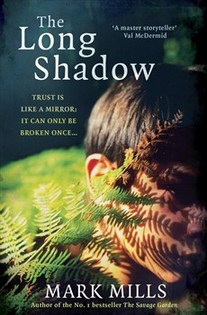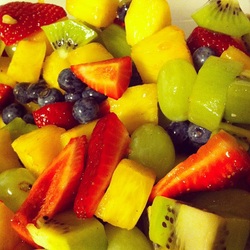
Ben is a scriptwriter aeons away from the big time, a divorced father living in a grotty flat. When a wealthy former schoolmate offers to bankroll his film and install him in his mansion while he does a rewrite, it seems almost too good to be true. As, indeed, it is, but Ben is so seduced by his good fortune and Victor so skilled at manipulation, it takes some time for him to figure out exactly how and why. When he does, it’s immensely satisfying: country house meets poisonous friendship (and so refreshing to have the latter portrayed from the male point of view for a change) seasoned with boys’ games along the lines of Lord of the Flies, the resolution encompasses envy, childhood neglect, rivalry and turning a blind eye to painful truths in a psychologically astute way. I must confess, however, I appreciated this more in retrospect and there were moments across the first 200 pages when I was tempted to give up.

Given the discussion here on Annecdotal about the “stolen head”, it’s interesting to note that the chapter that grabbed my attention was in the much-maligned first-person present, but it’s difficult to say whether that would have worked all the way through. Having read to the end, and I’m certainly glad I did, it’s clear that the boarding-school flashbacks and expensive cars, hotels and yachts that failed to impress me were essential depictions of life in a cloistered bubble that would eventually burst. I suppose my experience as a reader had echoes of some relationships where you don’t quite know what’s happening until it’s over. I’d be interested to see where else Mark Mills has taken his imagination; while this wasn’t quite the novel for me, I suspect he might have another I could happily make my friend.
The banana I mentioned at the beginning is the reason I’m posting this review today, since fruit is the latest prompt for The Carrot Ranch Flash Fiction Challenge. Having confused my mandarins with my oranges on the previous prompt, I didn’t hold out much hope for my success on this one. I could conjure up lots of fruit-related memories from eating mangoes fresh from the tree in Paraguay to having a spiky tongue from eating prickly pears in Sicily to thinking I had appendicitis after gorging on unripe papaya in Thailand, but this was fiction, not memoir. (Interesting how I can dredge up the memories easily until confronted by the Bite-Size Memoir prompt.) I couldn’t even think of many novels with a role for fruit apart from The Lemon Grove (featuring a holiday villa beside a lemon grove) and The Orphan Master’s Son (where tinned peaches laced with botulism play an important part in the plot). My ideas got stuck on kids getting their comeuppance with stomach aches after eating forbidden fruit, although it seemed too obvious, or to close to my memories. Yet, with time running out, it brought me to this:
Standing guard at the entrance, the cherries on the welcome desk caught Wasp’s gaze. Luscious globes brimming over the cut-glass bowl, glistening as if someone’s mother had held them under a running tap to wash away the dust. Had they stormed the greengrocer’s by mistake?
Brock cocked his gun towards the queue. Fox passed the bags across the counter. Wasp reached for a cherry but his gloved hands failed him, and the mask cloaked his mouth.
Customers whimpered. Fox told the cashier to hurry up. Wasp was a boy again, scaling the orchard wall.
Grabbing the bowl, Wasp fled.
| | As always, I welcome your comments on any aspect of this post: the review; your nominations for fruity novels; the success or failure of the flash; any idiosyncrasies in how you eat your fruit. And, if you like, you can see some pics of last summer’s fruit harvest and listen to an old English song with a different take on cherries to the one in the flash. |





















 RSS Feed
RSS Feed





















